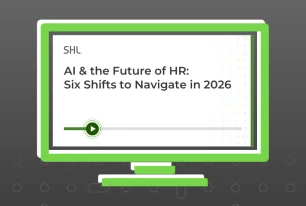Stop Guessing, Start Measuring: Skills Audits That Actually Drive Results
Skills audits can power sharper hiring, smarter development, and strategic workforce planning, if you avoid four common pitfalls and build a shared, data-driven approach.
Share
Why skills audits matter now
Skills are the currency of an agile workforce, yet most organizations still don’t know what skills their employees possess, how these align to their roles, or more importantly, if they are setup for future success.
With over 8 in 10 organizations intending to invest in building talent from within, it is critical to have a strong foundation to underpin workforce initiatives. This avoids wasted L&D spend on unnecessary development, hiring for immediate needs instead of long-term potential, and poor retention as employees get disengaged. A well-run skills audit can solve these issues by revealing real capabilities, surfacing critical shortages, and aligning people decisions to strategy.
Before undergoing a talent audit, it is useful to be aware of four common challenges that make data untrustworthy, and actions misaligned.
Challenge 1: No shared language for skills
Many audits fail because teams describe the same capability with different labels. 'Communication', 'stakeholder management' or 'client relations' might relate to the same capability but unless the leaders, individuals and the wider organization start speaking in the same language, it makes it difficult to compare skills. That means redeployment and mobility efforts are unable to move forward, stagnating transformation initiatives and effectiveness.
Unify the language, align it with what success looks like in your context, and make leaders the owners so it sticks beyond HR processes.
Challenge 2: Siloed and outdated skills data
Recruiting, performance, and L&D all hold fragments of skills information, collected in different ways, at different times, and with varying accuracy, so no one sees the full picture. HR might drive development in an area where they can see organizational skills gaps, managers may conduct their own reviews to determine how their team can be upskilled, and employees themselves may not know what skills they have or need to succeed.
Assign clear accountability for recurring skills audits, centralize data into a single, reliable view, and open cross-functional access to dissolve silos and enable confident decisions.
Challenge 3: Critical human skills are overlooked and undermeasured
Technical skills are easy to spot, but a better indicator of performance and potential are human behavioral skills like adaptability, collaboration, and problem solving. Without measurement of these durable skills, organizations hire and develop only for immediate needs, not future requirements making it harder to plan for succession, adapt to new tech like AI, and move with agility as business needs change.
Use science-backed assessments to measure human skills, focusing on the capabilities your top performers consistently demonstrate.
Challenge 4: Measurement without business linkage
An audit untethered from strategy is no more than an expensive survey, providing useful information but no actionable insights. Without the wider business context, goals and stakeholder buy-in, organizations won’t have development resources in place, be unable to identify those skills resulting in critical success, or plan effectively for a workforce that that thrive in the future.
Start with the capabilities the business will need in the next 12–18 months, target gaps that affect growth, and connect findings to development at every level.
A smarter foundation for growth
If these challenges sound familiar, you’re not alone, and you’re not stuck. The right skills audit is a strategic lever that aligns development to business goals, strengthens career pathways, and closes capability gaps before they become risks. With consistent, data-backed measurement, you’ll invest where it matters, mobilize talent faster, and build a workforce ready for what’s next.
Download our eBook, Beyond Guesswork: Effective Skills Audits for Today’s Talent Challenges, for practical steps to integrate skills data, and a clear strategy for building long-term success in your organization.









